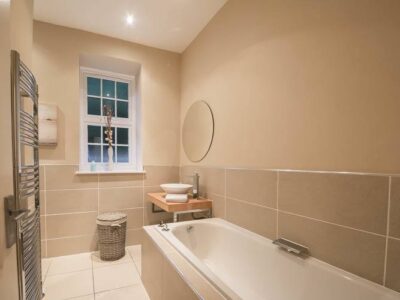
The luxury real estate market has long been a symbol of wealth, exclusivity, and exceptional living standards. As global wealth continues to rise and market dynamics evolve, the luxury property sector remains one of the most fascinating and lucrative investment areas. In this article, we’ll explore some of the key trends currently shaping the luxury real estate market, offering insight into what buyers, sellers, and investors need to know to stay ahead in this competitive field.
1. Demand for High-End Amenities
In the past, luxury properties were primarily defined by their location, size, and architectural design. However, the definition of luxury has broadened, with modern buyers increasingly seeking properties that offer high-end amenities that cater to their every need. Today’s affluent buyers expect not only spacious living areas but also exclusive features such as state-of-the-art home automation systems, private gyms, home theaters, wine cellars, and infinity pools with stunning views.
Moreover, sustainability and wellness have become central themes in luxury homes. Eco-friendly features such as solar panels, energy-efficient appliances, green roofs, and the use of sustainable materials are increasingly sought after. Buyers are looking for properties that not only offer luxury but also align with their values of environmental responsibility and a healthy lifestyle. These features provide a sense of well-being, a growing priority for many affluent buyers.
2. The Rise of Global Markets
Traditionally, luxury real estate markets were concentrated in a few major global cities like New York, London, Paris, and Dubai. While these cities remain prominent, there has been a noticeable shift in the global luxury real estate landscape. Emerging markets, particularly in Asia, the Middle East, and parts of Europe, are seeing increasing interest from international buyers. Cities such as Hong Kong, Singapore, and Istanbul are attracting wealthy individuals from across the world who are looking to invest in high-end properties.
This trend is also being driven by the ability of affluent individuals to work remotely or manage their businesses from anywhere. As a result, the global real estate market is becoming more interconnected, and luxury buyers are no longer tied to purchasing property in traditional hotspots. The rise of digital platforms for real estate transactions and virtual property tours has further facilitated this global trend, making it easier for investors to buy luxury properties abroad.
3. Luxury Second Homes and Vacation Properties
One of the most notable trends in the luxury real estate market in recent years has been the increasing demand for second homes and vacation properties. As travel becomes more accessible and desirable, affluent buyers are seeking homes in desirable vacation destinations such as coastal regions, mountain retreats, and private islands. This trend has only been amplified by the rise of remote working, with more individuals preferring to spend significant amounts of time at their second homes, rather than just for holidays.
Luxury buyers are looking for properties that provide the perfect combination of relaxation, privacy, and leisure. These homes are often designed with outdoor living in mind, featuring expansive terraces, gardens, and pools, and offering ample space for hosting family and friends. The trend toward second homes has also been fueled by a desire for increased personal security and a retreat from the bustling urban centers, providing a sanctuary for affluent buyers in a world where privacy has become a rare commodity.
4. The Impact of Technology on Luxury Real Estate
As with many other industries, technology is revolutionizing the luxury real estate market. Advances in virtual reality (VR) and augmented reality (AR) have made it possible for potential buyers to view and experience properties from anywhere in the world. Luxury real estate agents are increasingly using immersive technology to create virtual property tours, allowing clients to explore homes in great detail without physically visiting them.
Additionally, smart home technology has become an integral feature of luxury properties. From advanced security systems to lighting, climate control, and home entertainment systems, smart technology allows homeowners to seamlessly integrate technology into their everyday lives. For many buyers, the ability to control various aspects of their home from their smartphone or tablet is now a must-have feature.
5. Sustainability and Green Living
Sustainability has become a dominant force in the luxury real estate market. Wealthy buyers are increasingly prioritizing environmentally conscious homes that use green building practices and energy-efficient technologies. Luxury developments now often feature sustainable designs, such as passive homes that minimize energy consumption, or properties with LEED (Leadership in Energy and Environmental Design) certifications.
For luxury real estate developers, integrating sustainability into their properties not only meets the growing demand for eco-friendly living but also adds significant value to the property. Green spaces, energy-efficient heating and cooling systems, and eco-conscious building materials are becoming standard features in new luxury developments. Buyers are willing to invest in properties that help reduce their environmental footprint while still offering the highest levels of comfort and sophistication.
6. The Shift Toward Suburban and Rural Properties
While urban luxury markets continue to thrive, there has been a noticeable shift towards suburban and even rural areas. As more people embrace remote work and the desire for larger living spaces grows, affluent buyers are looking beyond the city limits to find properties that offer privacy, space, and a connection to nature. Suburban areas with good access to metropolitan hubs have become increasingly desirable, as they provide a quieter lifestyle while still being within reach of urban amenities.
This trend has been further accelerated by the pandemic, which caused many individuals to reconsider their living environments and opt for more spacious, less densely populated areas. Suburban luxury properties often offer larger lots, more outdoor space, and opportunities for farming or gardening, which appeals to buyers seeking a more self-sufficient and peaceful lifestyle.
7. The Role of Personalization and Customization
As the luxury real estate market becomes more competitive, personalization and customization are becoming essential selling points. Affluent buyers are increasingly seeking properties that reflect their individual tastes and preferences, and they are willing to invest in homes that can be tailored to meet their specific needs. From custom-designed interiors to bespoke furniture and unique architectural features, the desire for a personalized living experience is driving demand for properties that offer high levels of customization.
Developers and agents are responding to this demand by offering luxury homes that can be fully personalized, with options for clients to choose finishes, materials, layouts, and even technological features. This trend is also being driven by a desire for exclusivity—homeowners want their property to be truly one of a kind, an extension of their personal brand and lifestyle.
8. Investment Potential of Luxury Real Estate
For many high-net-worth individuals, luxury real estate is not just a place to live—it’s also a valuable investment. Luxury properties tend to appreciate in value over time, especially those located in prime locations. Buyers looking to diversify their portfolios often view high-end properties as a safe and profitable investment, particularly in markets where demand for luxury housing continues to outpace supply.
The potential for capital appreciation, coupled with the ability to generate rental income from vacation homes or luxury apartment rentals, makes real estate a compelling investment choice. Additionally, with interest rates remaining relatively low in many markets, the luxury real estate market remains an attractive investment vehicle for those looking to preserve and grow their wealth.
Final Thoughts
The luxury real estate market is a dynamic and evolving sector that offers both challenges and opportunities for investors, buyers, and sellers alike. With emerging global markets, a growing focus on sustainability and wellness, and increasing demand for personalized properties, the landscape of luxury real estate is changing rapidly. Understanding these trends can help you navigate the market with confidence, whether you are looking to buy, sell, or invest in high-end properties. As the market continues to evolve, staying informed about the latest trends will ensure that you are always one step ahead in this exciting and lucrative sector.











